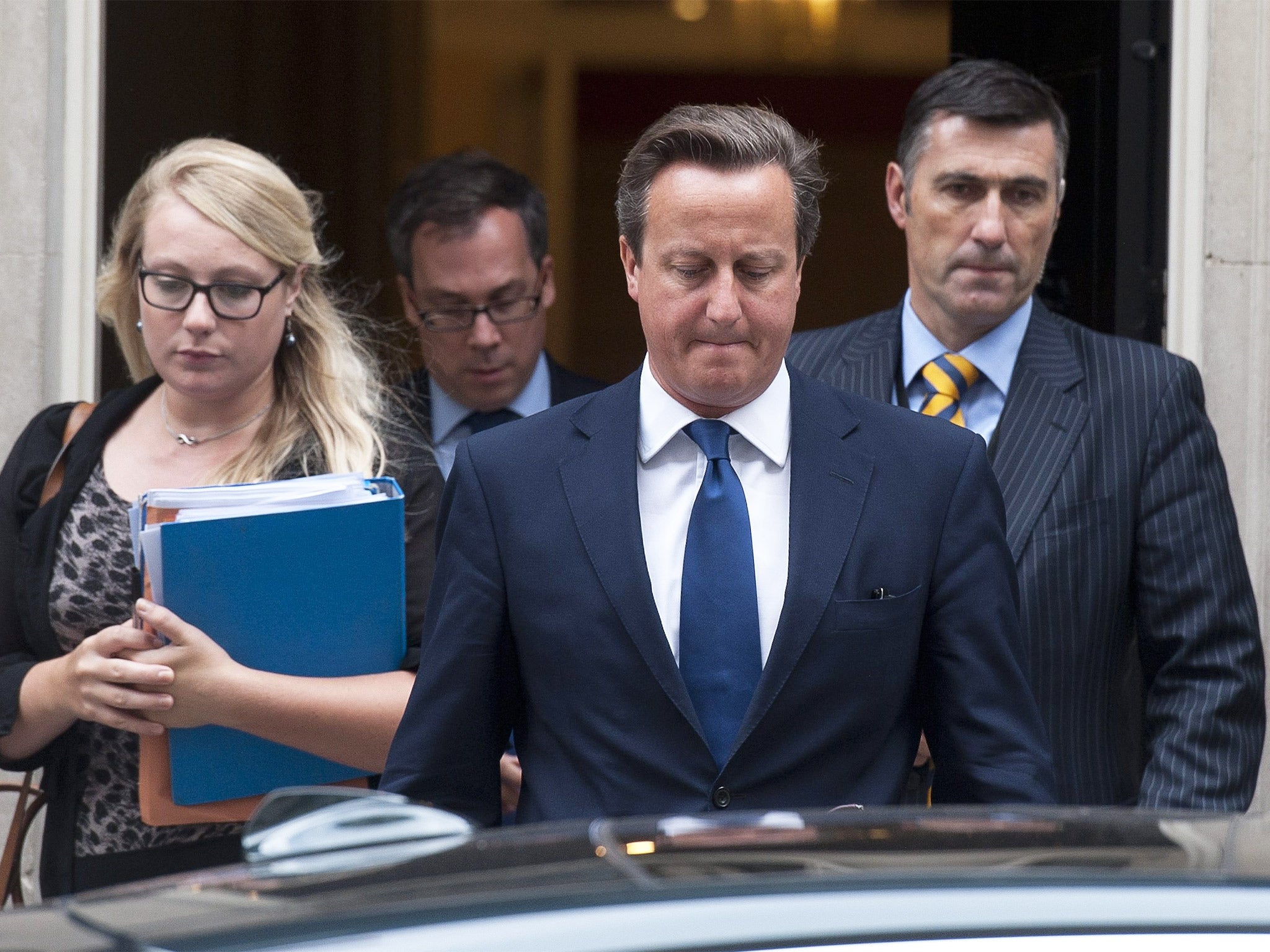Tory anti-terror laws in trouble after Lib Dems raise serious legal concerns

David Cameron’s plans to tighten the anti-terror laws are in trouble amid a deepening split inside the Coalition.
The Liberal Democrats have warned they will not be bounced into backing new legislation, and would not allow the Conservatives to blame them for blocking a crackdown.
Lib Dem sources claim Mr Cameron overreached himself when he floated new laws last Friday without considering whether they were workable, saying that the problem was not Lib Dem opposition, but doubts among Government legal advisers.
In the Commons, the Prime Minister vowed that plans to toughen the laws so that terror suspects could be forced to relocate to another area “will go ahead.”
He also argued that stopping jihadists returning to Britain from Iraq and Syria would be “legally permissible” despite doubts that it could be illegal under international law - as it could leave people “stateless”. Mr Cameron admitted this would “take some work” but insisted: “There may be occasions when we need to exclude, and so we should fill that gap in our armoury. I believe it is legal and possible to do it."
But within minutes the Lib Dems made clear that there was no agreement inside the Coalition on relocating suspects already in Britain or blocking their return to this country. Nick Clegg is prepared to “exclude” suspects from places such as community centres but is not persuaded by the need to relocate them.
A Lib Dem spokesman said that preventing the return of jihadists was “a very legally complicated issue and needs to be examined very closely.” He added that the Lib Dems were ready to look at whether the use of exclusion zones under the existing legislation could be expanded to meet the concerns raised by David Anderson, the independent reviewer of terrorism legislation.
Labour claimed Mr Cameron was “all over the place” on his proposals on domestic security. A Labour source said: "The Prime Minister confirmed he wants to go ahead with relocation powers. That is very different from what the Deputy Prime Minister said earlier this week. In the Prime Minister's answer on stopping British citizens returning to the country, he still couldn't be clear on what 'exclude' actually means.
"It would be accurate to describe the Government's position as all over the place on these matters. It is five days since Friday and there is no clarity, no detail and no timetable."
At Prime Minister’s Questions, Ed Miliband put on a united front over the threat by Isis to kill a British hostage, but exposed the differences in the Coalition over tightening the law.
Later Dominic Grieve, the former Attorney General sacked by Mr Cameron in July, warned: “I find it difficult to see how a proposal to prevent a British national from returning to our country could be carried out, even temporarily, without legal, practical and reputational problems for us.”
Mr Grieve asked: “How would my friend and colleague the Home Secretary have felt if, at the last minute, the Jordanian government had done the same to us over Abu Quatada? Where are the common law principles of freedom under the law and the presumption of innocence if individuals cannot return to face prosecution and trial in their own country on grave allegations that are being levelled at them. How would a temporary ban assist security, except temporarily?”
Join our commenting forum
Join thought-provoking conversations, follow other Independent readers and see their replies
Comments